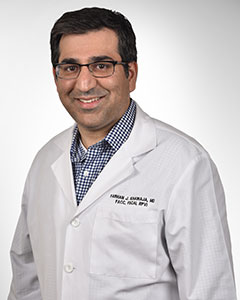More Exercise & Better Diet: How to Cut Your Heart Disease Risk
Heart disease is the leading cause of death in the U.S, killing 181,000 people each year, according to the American Heart Association.
About 92 million Americans live with heart disease or complications from stroke, a condition that shares many of the same risk factors as heart disease. Prevention is key to reducing heart disease risk and the number of Americans who live with this condition, which is why a panel of experts recently proposed that doctors counsel even patients with a low-to-moderate risk.
The U.S. Preventive Services Task Force, an independent panel of experts in prevention and evidence-based medicine, issued a draft recommendation that encouraged physicians to provide individualized counseling to patients without known risk factors for heart disease.
“The Task Force found that for people who are not at increased risk for heart disease, counseling on healthy eating and physical activity may help prevent heart disease for some people,” says Susan Curry, PhD, vice chair of the task force. “In this draft recommendation, the Task Force encourages primary care professionals to individualize this counseling and consider offering it to adults who are interested in and motivated to make lifestyle changes.”
Common risk factors for heart disease include smoking, obesity, high cholesterol, high blood pressure, poor nutrition, diabetes and lack of exercise. The panel says existing evidence indicates a small, but positive benefit if primary care doctors offer or refer low-risk patients to behavioral counseling to prevent heart disease. It said people who are most interested and ready to make positive lifestyle changes will benefit the most from this counseling.
Encouraging patients to eat healthy and exercise more can do no harm. It only can improve patients’ health — whether or not they are at risk for heart disease or other chronic conditions. Research supports this, according to the panel. Behavioral interventions have led to patients eating more fruits and vegetables, eating fewer calories per day, reduced salt consumption and increased exercise. These interventions also have been proven to lower blood pressure and cholesterol levels and body mass index (BMI) for up to 12 months.
I wholeheartedly agree with the panel’s thinking on this topic. The usual lifestyle recommendations should apply to people throughout the risk factor spectrum, and the health care community should encourage positive lifestyle choices throughout the population.
Even people who are low-to-moderate risk can benefit from a healthy lifestyle and moderate physical activity because their risk for heart disease may increase as they age and they may move into a different risk category as they develop risk factors they didn’t previously have.
We have to do more to encourage positive lifestyle changes, because not enough of the population does the right things now to stay healthy. Americans eat less than the recommended amount of fruits, vegetables and whole grains every day. Salt consumption also is high, as Americans consume 3,400 milligrams of sodium a day — way above the recommended amount of 2,300 milligrams daily.
To encourage patients to make better choices, we must give them actionable, evidence-based advice. I always tell patients who are ready to make a lifestyle change they should start small. When it comes to physical activity, just encouraging any amount of physical activity to start out with is better than no exercise at all. Even 5, 10 or 15 minutes of exercise every other day is okay. Too often, people start out with huge expectations and goals that aren’t realistic. But start small, build the habit and you’ll begin to see positive results.
I also tell my patients to try the Mediterranean diet, which emphasizes plant-based foods, healthy fats like olive oil, lean proteins like fish and poultry, limiting red meat and using herbs and spices to season food instead of salt. From a scientific standpoint, the Mediterranean diet is one of the best studied diets and has been linked to a lower risk for heart attack and stroke.
Even with diet and exercise, one of the most impactful lifestyle changes anyone can make is to stop smoking if you haven’t yet kicked the habit. Smoking increases heart disease risk because it causes buildup and damage in the arteries that affect blood flow to the heart, potentially causing a heart attack or stroke. Even if you eat healthy and exercise regularly, smoking will continue to elevate your risk.
Heart disease is a serious condition, but it’s also largely preventable for most of the population. Every 40 seconds, someone loses their life to this disease, but we may be able to reverse this trend by giving patients the tools they need to change their lives. The bottom line is that if you just do the basics — like eating right and getting regular exercise — you will reduce your risk.
Are you looking to schedule an appointment with an Orlando Health cardiovascular physician?
We offer comprehensive services across a wide range of cardiovascular conditions. Request an appointment online and our staff will follow up with you to confirm the appointment time, location, date.


